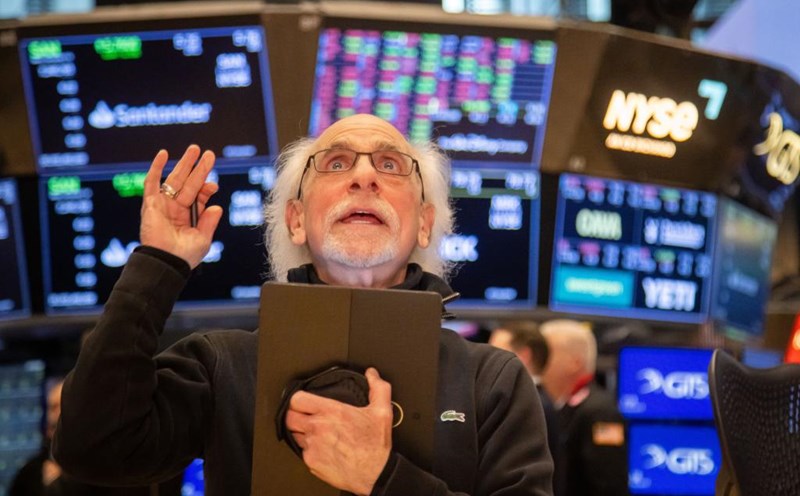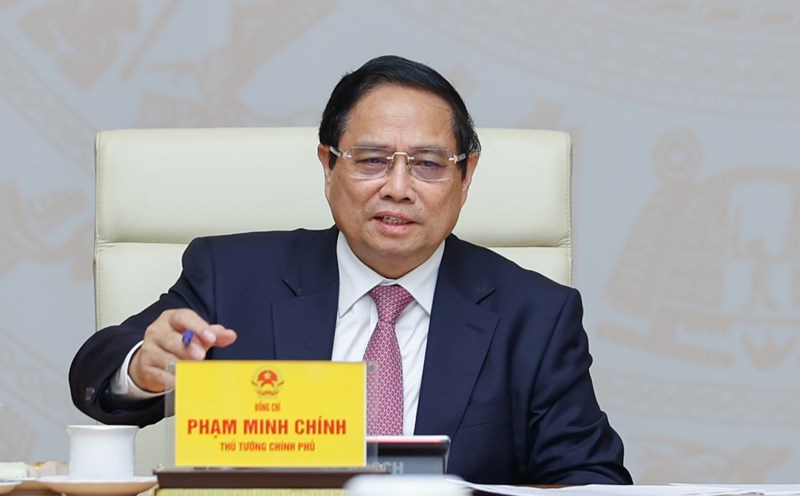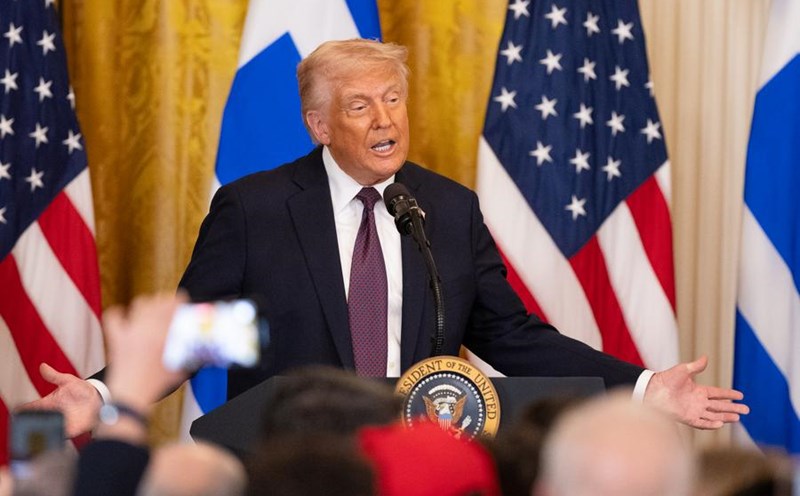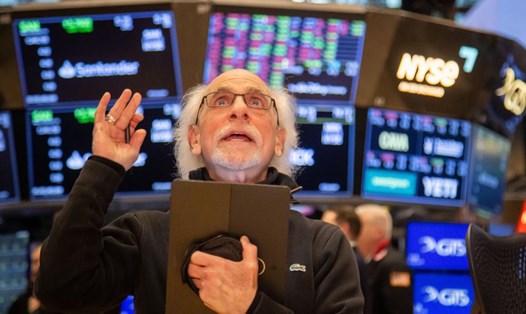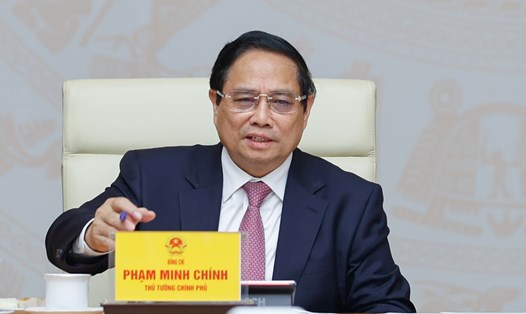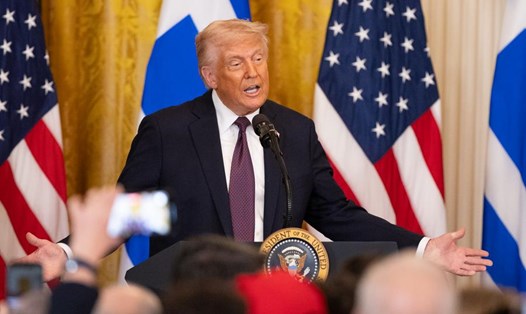On April 11, the Ministry of Foreign Affairs said that the working delegation led by Deputy Prime Minister Ho Duc Phoc working in the US to discuss bilateral economic and trade issues had completed the tasks and goals assigned by the leaders of the Party, State and Government.
According to the direction of the Prime Minister, on April 11, a Vietnamese negotiating delegation will be established to immediately discuss with the US negotiating delegation led by Minister of Finance Bessent, aiming to soon reach a stable, sustainable and mutually beneficial bilateral trade agreement.
On the morning of April 8, 2025, Deputy Prime Minister Bui Thanh Son also chaired a meeting of the Working Group on strengthening cooperation and proactively adapting to adjustments to US economic and trade policies.
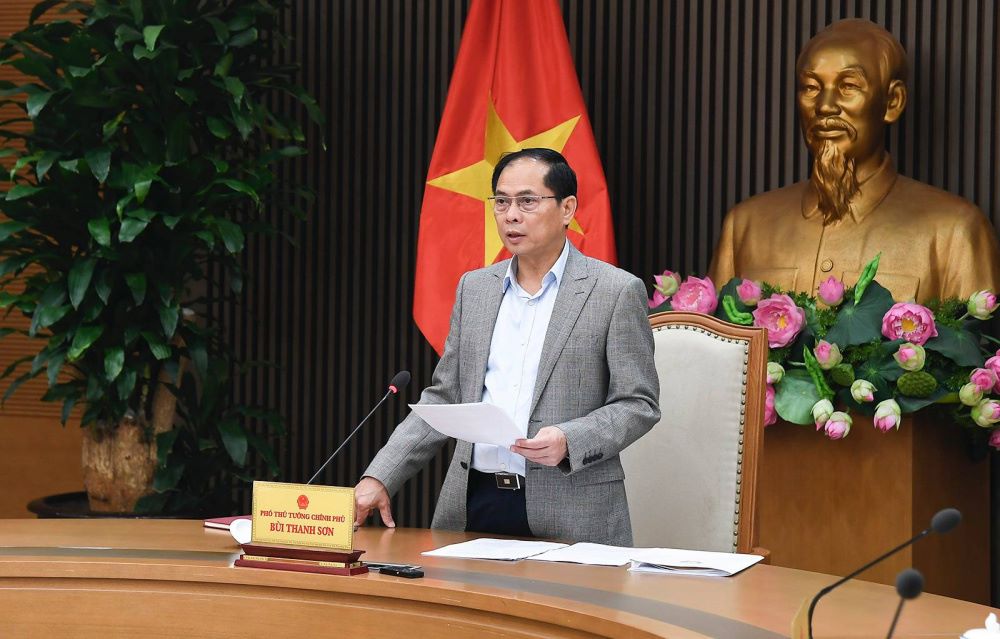
Regarding the issue of copyright and intellectual property, Deputy Prime Minister Bui Thanh Son assigned the Ministry of Science and Technology to review legal regulations and address US concerns.
The Ministry of Finance coordinates with ministries and branches in developing bilateral agreements with the US towards upgrading the bilateral Trade Agreement (BTA), including adding content on tax and intellectual property.
Previously, on July 13, 2000 in Washington D.C, the US, Vietnam and the US officially signed the Vietnam - US Bilateral Trade Agreement with many contents on intellectual property rights.
According to the Vietnam - US Bilateral Trade Agreement (BTA), the two sides are committed to protecting and effectively exercising the intellectual property rights of each other's citizens in their territories.
Protection must not hinder legitimate trade and must be consistent with development, technological and social goals.
Each side ensures that the citizens of the other side are treated equally as effectively as domestic citizens in the establishment, protection and exercise of intellectual property rights.
No unreasonable formal procedures or conditions are required to enjoy national treatment.
Regarding the brand of goods, a brand includes all signs that can be distinguished, including service brands, collective and certification.
The trademark owner has the right to prevent the illegal use of confusing signs.
cannot refuse to register just because it has not been used before the end of 3 years.
Prohibit unethical trademark registration, causing confusion, insulting organizations/ Beliefs, or having general terms.
Regarding patents, each party guarantees the right to grant exclusive patents to all technology fields if it meets the requirements of novelty, creativity and applicableity.
Unethical patents that harm health, the environment or public order can be ruled out.
Regarding confidential information/commercial secretion: Protect confidential information that is not disseminated, has commercial value and is kept reasonably confidential.
Prohibit illegal disclosure/acess/use of this information.
If confidential data is required to request a product circulation permit (such as a pharmaceutical), it must protect that data from being illegally used and disclosed for at least 5 years.
Regarding industrial designs: Protect new or original industrial designs, except for functional designs.
The owner has the right to prevent the production and distribution of products that copy the design.
The minimum protection period is 10 years.
Regarding the implementation of intellectual property rights: Each party must have effective legal procedures to handle acts of infringement of intellectual property rights, including emergency measures and strict sanctions.
The procedures must be fair, not complicated, not costly, and do not cause legitimate trade obstruction.
Border procedures allow suspension of import of counterfeit goods or illegal copies, and may apply to other export/fraud goods.

